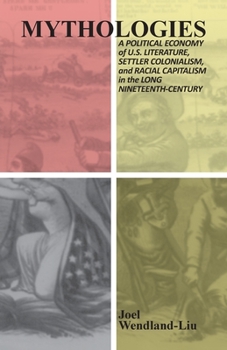Mythologies
Four myths dominated U.S. ideology in the 19th century. Myths of white victimization, capitalist progress, the frontier, and the ″self-made man″ shaped how many Americans thought about themselves. These ideas lay at the heart of ruling class justification for settler colonialism, the expansion of racial slavery, and the development of the capitalist market system. They became the basis for the transition to U.S. global imperialism.
This interdisciplinary study explores how literature in that long century created or challenged those mythologies.
Marxist analysis of class struggle, social relations of production, racial capitalism, colonialism and imperialism, and heteronormative patriarchy are the main tools to understand the complex relationship between ideas and society. Mythologies uses those tools for new readings of the writings or speeches of James Fenimore Cooper, Royall Tyler, William Apess, Sojourner Truth, Harriet Wilson, Andrew J. Blackbird, Booker T. Washington, Anna Julia Cooper, and Yung Wing.
Mythologies shows how activists, writers, and thinkers who debunked those four mythologies anticipate the great revolutionary ideas of the 20th century.
Related Subjects
History Political Science Politics & Social Sciences Social Science Social Sciences




